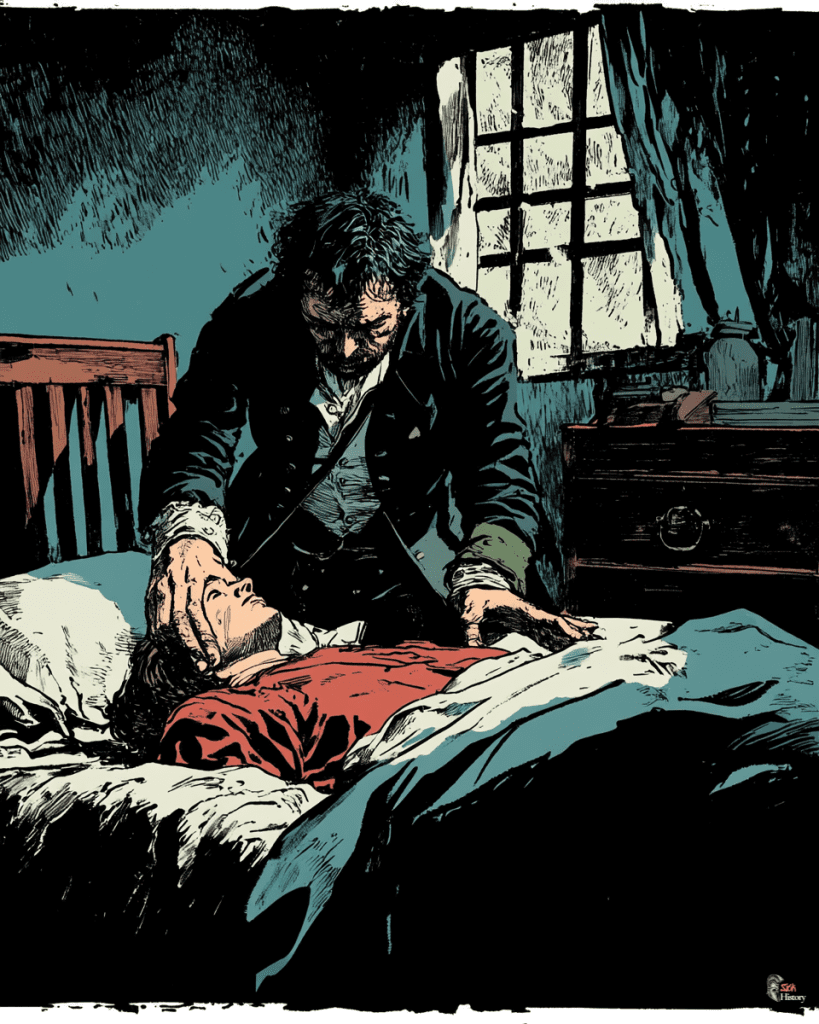Edward Jenner’s groundbreaking work in the late 18th century revolutionized medicine and laid the foundation for modern immunology.
His ingenious experiments with cowpox led to the development of the world’s first vaccine, forever changing the course of public health.
Jenner’s smallpox vaccination marked a pivotal moment in medical history, paving the way for the eventual eradication of a disease that had plagued humanity for centuries.
The English physician’s meticulous approach to scientific inquiry and his keen observations of rural folklore combined to produce one of the most significant medical breakthroughs of all time.
The story of Jenner’s discovery is a testament to the power of curiosity and perseverance in the face of skepticism.
His work not only saved countless lives but also established the principles of preventive medicine that continue to shape healthcare practices today.
The impact of Jenner’s contributions extends far beyond his own time, influencing modern vaccine development and public health strategies that protect millions worldwide.
The Dawn of Immunology
Edward Jenner’s groundbreaking work in the late 18th century laid the foundation for modern immunology.
His discovery of vaccination transformed medical science and public health, leading to one of the greatest achievements in human history – the eradication of smallpox.
Edward Jenner and the Gift of Cowpox
Edward Jenner, an English physician, made a remarkable observation that would change the course of medical history.
He noticed that milkmaids who contracted cowpox seemed immune to smallpox, a far deadlier disease.
This insight led to his pioneering experiment in 1796, where he inoculated a young boy with material from a cowpox lesion.
The boy developed mild symptoms but recovered quickly.
When later exposed to smallpox, he showed no signs of infection. Jenner called this process “vaccination,” derived from the Latin word for cow (vacca).
His findings, published in 1798, met initial skepticism but soon gained widespread acceptance. Jenner’s method proved safer and more effective than the previous practice of variolation.
Eradication of Smallpox
Jenner’s discovery paved the way for a global effort to eradicate smallpox.
The World Health Organization launched an intensified campaign in 1967, employing mass vaccination strategies.
Key tactics included:
- Ring vaccination: Immunizing contacts of infected individuals
- Surveillance and containment: Rapid detection and isolation of cases
- Bifurcated needle: A new tool for easier vaccine administration
These efforts bore fruit in 1980 when the WHO declared smallpox eradicated. This marked the first time in history that humans had completely eliminated a disease.
The success inspired hope for tackling other infectious diseases and highlighted the power of vaccination as a public health tool.
Pioneering Medical Research
Jenner’s work exemplified the scientific method in medicine.
He meticulously documented his observations, conducted experiments, and published his findings for peer review.
His approach included:
- Hypothesis formation based on careful observation
- Controlled experimentation
- Detailed record-keeping
- Publication and dissemination of results
This methodology set a new standard for medical research. It encouraged a more systematic approach to understanding disease and developing treatments.
Jenner’s legacy extends beyond smallpox. His work laid the groundwork for modern immunology, inspiring generations of scientists to explore the complexities of the immune system and develop vaccines for numerous other diseases.
Legacies of Innovation
Edward Jenner’s groundbreaking work in smallpox vaccination left an indelible mark on medical history. His innovative approach revolutionized healthcare, laying the foundation for modern preventive medicine and vaccine development.
Preventive Medicine and Public Health
Jenner’s smallpox vaccine marked a pivotal shift in medical thinking. It introduced the concept of preventing diseases before they occur, rather than merely treating symptoms.
This revolutionary idea transformed public health strategies worldwide.
Jenner’s work sparked widespread vaccination campaigns.
Governments and health organizations began implementing large-scale immunization programs, dramatically reducing smallpox cases.
His methods also paved the way for improved sanitation practices and health education. Public health officials recognized the importance of disease prevention in maintaining community well-being.
Vaccine Development and Breakthroughs
Jenner’s pioneering research laid the groundwork for future vaccine discoveries.
His methodology of using a milder, related disease (cowpox) to protect against a more severe one (smallpox) became a template for vaccine development.
This approach led to the creation of vaccines for numerous diseases, including:
- Polio
- Measles
- Mumps
- Rubella
Jenner’s work also inspired advancements in immunology. Scientists began to understand the body’s immune responses, leading to more effective vaccine formulations.
Foundations of Modern Medicine
Jenner’s contributions extended beyond vaccination. His rigorous scientific approach set new standards for medical research.
He meticulously documented his observations and experiments, emphasizing the importance of evidence-based practice.
This methodology became a cornerstone of modern medical research.
Jenner’s work also highlighted the ethical considerations in medical experimentation.
His careful approach to testing the smallpox vaccine on human subjects influenced future guidelines for clinical trials.
His legacy continues to shape medical education.
Medical schools worldwide teach Jenner’s principles of observation, experimentation, and documentation as fundamental skills for aspiring doctors.

